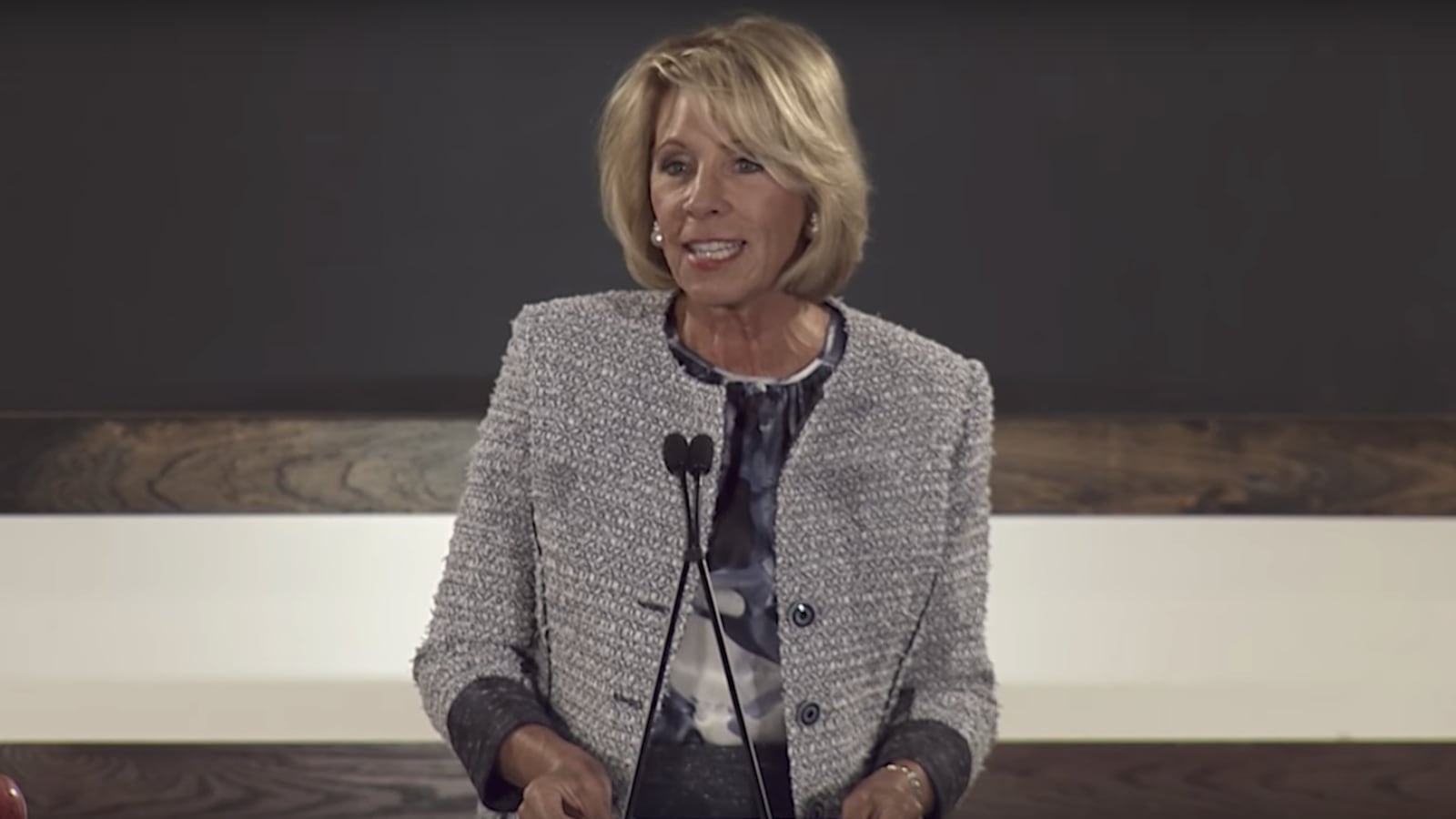Donald Trump’s nominee to be the nation’s next secretary of education doesn’t live in Detroit. She doesn’t routinely work in Detroit, either.
But Detroit is nonetheless sure to be on the agenda when billionaire philanthropist Betsy DeVos sits down Tuesday before the Senate Health, Education, Labor and Pensions committee for the start of her confirmation hearings.
That’s because DeVos, who lives in western Michigan, has been a leading architect of the free-market-style school choice policies in Michigan that many Detroit school supporters blame for the dire state of Detroit schools.
Critics assert that Michigan charter schools can open wherever they want, shut down without notice and operate with less oversight than charters in some other parts of the country.
DeVos defenders say she’s created educational opportunities for families that otherwise wouldn’t have had them, noting that Detroit charter school students on average do slightly better on state exams than their district school peers.
But this much is clear: When the DeVos hearing starts at 5 p.m. Eastern on Tuesday, viewers are bound to hear arguments from both detractors and defenders that are driven more by ideology than fact.
With that in mind, here are answers to some key questions that could come up about Detroit and DeVos:
Are Detroit schools really that bad?
Well, yes, at least if you believe the test scores. Detroit students scored far below kids in other struggling urban districts on a national exam. And though Detroit families have a lot of “school choice” options including district schools, charter schools and suburban schools that take kids from other districts, most schools in the city are low performing. Of more than 200 schools in Detroit — roughly half of which are charter schools — the vast majority were near the bottom on the state’s last top-to-bottom school ranking based on test scores. Just ten schools — six selective district schools and four charters — were in the top half.
Has Betsy DeVos called for improvements for the Detroit Public Schools?
Not quite. Last winter, as the Michigan state legislature pondered a massive financial rescue plan designed to prevent the state’s largest school district from falling into bankruptcy, DeVos urged the state to abolish the district. “We must acknowledge the simple fact that DPS has failed academically and financially – for decades,” she wrote in an op/ed in the Detroit News.
Dissolving a school district is not unheard of in Michigan where several smaller districts including Highland Park, which is wholly surrounded by Detroit, have been essentially turned over to charter school operators.
Detroit schools were turned over to a series of state-appointed emergency managers starting in 2009 but DeVos asserted that district is too far gone to fix. Her political organization took to Twitter with the hashtag #EndDPS.
Are Detroit charter schools any better than district schools?
Some are. Some not so much. A major study by the Center for Research on Education Outcomes (CREDO) at Stanford University found that Detroit charter school students do score better on average on state exams. The researchers matched charter school students with district school students who had the same demographic profiles, then looked to see who scored better. The study found that 8 percent of kids in charter schools did worse than their district peers while 60 percent of charter school kids bested the district kids.
That’s not saying much, given the rock-bottom scores in Detroit’s district schools, said James Woodworth, a senior research analyst for CREDO. But, he said, charters are providing a stronger option.
“People are very correct in saying that the academic performance of charter schools in Detroit is still lower than the national average but it’s better than the non-charter schools,” Woodworth said.
So what makes Michigan charter school policies so controversial?
Michigan has a charter school law that puts no restrictions on where or how many charter schools can open. The state does have the ability to close schools for poor performance, but it generally has not done so (though that is likely to change soon). The setup has created an environment in which Detroit has more schools than kids — an estimated 30,000 classroom seats sitting empty. That has forced district and charter schools to aggressively compete with each other for students, then slash programs or increase class sizes when too-few kids lead to tighter budgets.
“Detroit is the foremost example of the adverse consequences of a poorly regulated education market,” said Michigan State University professor David Arsen. “I say this as an advocate for school choice. Choice is good but … in Detroit you have a system that is chaotic.”
Has Betsy DeVos supported this ‘chaotic’ environment?
DeVos supporters note that she’s a strong advocate for school accountability. She’s pushed for an A-F letter grade system and for strong consequences for schools that earn low marks, including both district and charter schools. But her critics say she has blocked serious attempts to bring order to the chaos.
Notably, last year, when a broad coalition of Detroit schools advocates pushed for a mayoral commission that would oversee the opening of new district and charter schools and would be able to coordinate things like enrollment and transportation, DeVos and her allies saw the effort as an attack on charter schools and moved to block it. Members of the DeVos family spent $1.45 million in June and July — $25,000 a day for seven weeks — supporting lawmakers who voted against the commission.
DeVos supporters, however, note that though the final bill passed along party lines without support from Detroit lawmakers, it did provide $617 million for the main Detroit school district and did include some measures to improve quality. Among them: a new requirement that the universities that authorize charter schools become accredited. The law also included a requirement that all district and charter schools in Detroit be shuttered after repeated years of failing test scores.

